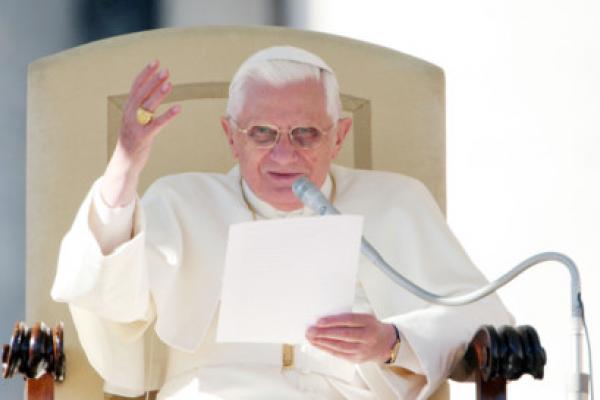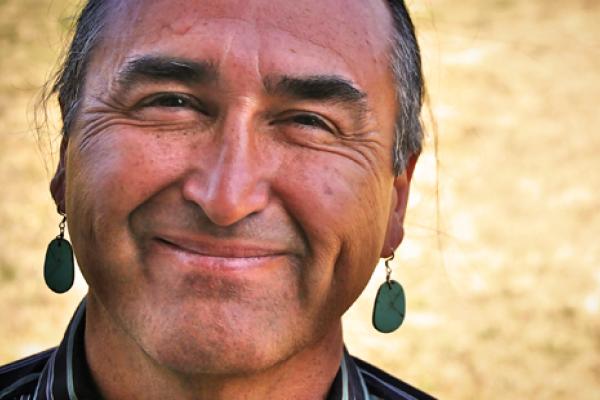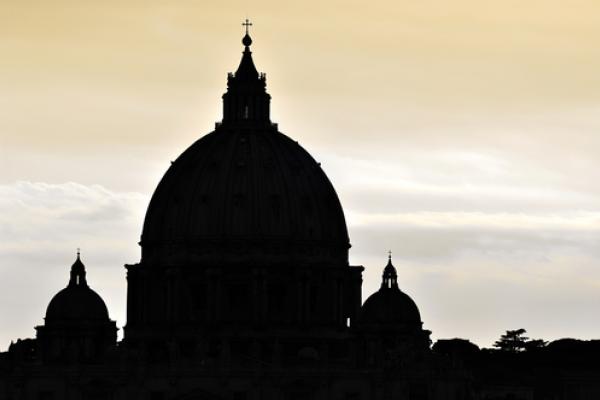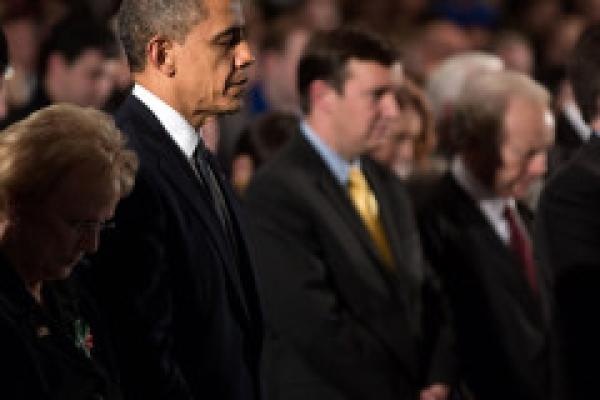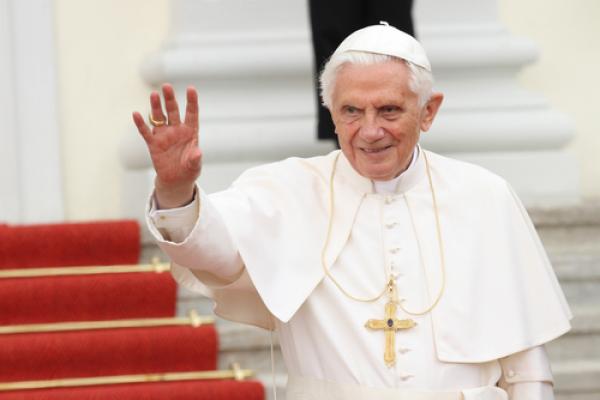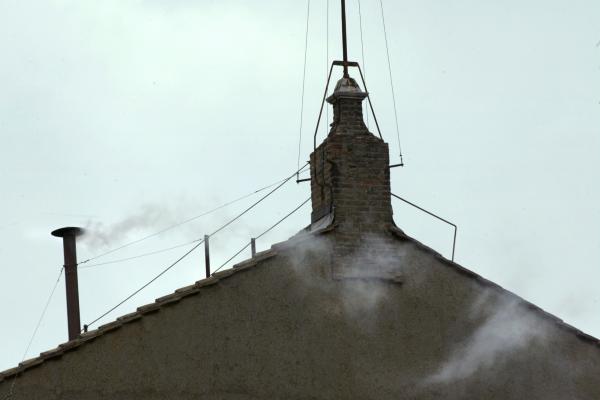"I urge lawmakers to press for comprehensive and universal background checks for firearm ownership, regardless of where and how a gun is purchased; for bans on the availability to civilians of assault rifles and high-capacity magazines; and for policies designed to better regulate the manufacture of guns,” the Presiding Bishop states in her testimony. “The Episcopal Church also supports the highest level of accountability for violation of all existing laws pertaining to violence in our midst.”
Pope Benedict XVI came into office with the reputation of a conservative hardliner, a vigorous defender of orthodoxy who wanted to restore Tradition — yes, with a capital “T” — to a church that was seen as disturbingly undisciplined.
Yet with the stunning announcement that he is resigning as the 264th successor to Saint Peter, Benedict may wind up fundamentally changing the way the church and the world view the papacy.
That’s because the papacy has come to represent more than an office, and the pope more than just a higher-ranking priest or bishop who enjoys lifetime tenure, a nice Vatican apartment, and the privilege of wearing a white cassock no matter the season.
Instead, the papacy is seen as a divine mission unlike any other in the church, and one that ends only in death.
“Christ did not come down from the cross,” the late John Paul II, Benedict’s immediate predecessor, would tell aides who wondered if his failing health and public suffering should compel him to relinquish his office.
A man is elected pope by the cardinals, yes, but at the behest of the Holy Spirit, according to Catholic theology. He takes a new name, and can’t even go home to collect his things: He moves into the Vatican right away, inhabiting a new identity in a new position — so superior that canon law says a pope can resign, but says he cannot resign to anyone.
On Friday afternoon, I received an email and call from Sue Martel, the editor of Richard Twiss' forthcoming book,Rescuing Theology from the Cowboys: An Emerging Indigenous Expression of the Jesus Way in North America. As we finished the conversation, she shared that she had a vision of someone anointing Richard’s feet with oil. I shared that earlier in the day I felt called to do the same, but I didn’t know the meaning of the vision. On the way to the hospital, I read the story of Lazarus and the grave (John 11: 1-44) and felt called to read it over Richard. So, when I arrived at the hospital, I learned that during the day, Richard’s kidneys failed. I shared the conversation with Katherine Twiss, Richard’s wife and co-founder of Wiconi, and she blessed me to read and to anoint Richard’s feet. As I read, we all wept. I never noticed this before, but the scripture begins with an explanation that Lazarus was the brother of Mary — the one who anointed Jesus’ feet for burial. I anointed Richard’s feet and prayed.
In the prayer, it was clear that we were being called to believe that God was going to do a miracle. It was one of two kinds of miracles: either God was going to say “Richard, come forth!” and call him out of the grave to walk among us once more or God was going to say “Unbind him” (John 11:44a) from this broken body. “Let him go.” (John 11:44b) “It is finished … Well done good and faithful servant,” thus completing the miracle that was Richard Twiss’ life. As we stood around his bed that night we didn’t know which miracle it would be, so we waited.
Pope Benedict XVI’s sudden announcement that he would resign by the end of the month took the church and the world by surprise, in large part because it was a move without precedent in the modern world.
But what comes next is as old and familiar as the papacy itself: Speculating about who will succeed to the Throne of St. Peter.
Indeed, within months of Benedict’s own election in 2005, church insiders and online oddsmakers were trying to figure out who might be next, given that Benedict — now 85 — was already aging, increasingly frail, and had himself declared that he did not expect his reign to be a long one.
So what will happen when the world’s cardinals gather before the splendor of Michelangelo’s Last Judgment fresco in the Sistine Chapel to elect a new pope? Who are the “papabile,” as the Italians say, the “pope-able” cardinals?
Will the conclave make the epochal break with the European monopoly and pick a cardinal from Latin America or Africa? The Catholic Church is booming in the Southern Hemisphere, as opposed to Europe and North America, where it is on life-support or barely treading water.
The president of the Lutheran Church–Missouri Synod apologized for his role in the “debacle” that led him to publicly reprimand a pastor in Newtown, Conn., for praying at an interfaith service following the mass shooting at Sandy Hook Elementary School.
In the initial incident, the denomination’s president, Matthew C. Harrison, requested an apology from the Rev. Rob Morris of Newtown’s Christ the King Lutheran Church for participating in an interfaith prayer vigil that followed the Dec. 14 shootings. Morris’ role in the vigil broke denominational rules against joint worship with other religions.
Morris complied and apologized — not for his participation, but for offending members of the St. Louis-based denomination. But the president’s request sparked a blaze of criticism — from within the denomination and outside it. Critics charged he was intolerant and insensitive to the town’s grieving residents.
“In retrospect, I look back and see that I could’ve done things differently,” Harrison said in a video posted on the denomination’s blog Sunday. “My deepest desire was to bring unity, or at least to avoid greater division in the Synod over this issue.”
VATICAN CITY — Pope Benedict XVI will soon become the first pope to resign since 1415, short-circuiting many of the initial stages of electing a new pope. But the Vatican says the transition to a new papacy shouldn’t be all that different from normal.
Of course, the traditional rituals associated with confirming the death of a pope and planning his funeral will not be necessary. But the process outlined below, rife with secrecy and tradition, will largely follow centuries-old protocol.
Following is a brief explanation of the process used in a conclave to elect a new pope.
Q: Who governs the church until a new pope is elected?
A: Day-to-day operations are handled by the Vatican curia, the central bureaucracy. All prelates who head Vatican agencies resign after the death or resignation of a pope. Provisions are made to oversee the papal household, the spiritual needs of Romans and to grant absolutions.
Q: What does the word “conclave” mean?
A: The word comes from the Latin, “with a key,” referring to the tradition of locking the doors until cardinals elect a winner.
Q: Who is eligible to be elected pope?
A: Technically, any baptized male Catholic is eligible, provided he is not married and in good standing with the church. Since 1378, however, new popes have come from within the College of Cardinals.
